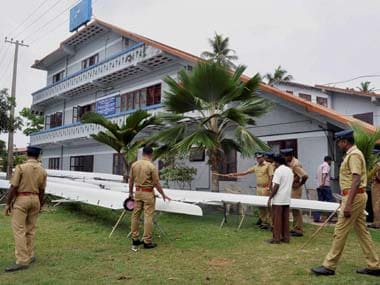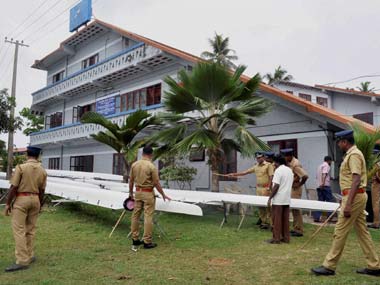The suicide attempt by four girls at the Sports Authority of India’s Water Sports Centre in Kerala has laid bare the devastating consequences of the gaps in India’s grassroots sports programmes There are approximately 10,000 athletes training at the 250 SAI centres around the country, but not a single qualified professional to provide them with counseling if they need it. [caption id=“attachment_2234074” align=“alignleft” width=“380”]  Police search the compound of Sports Authority of India centre in Alappuzha where four female athletes tried to commit suicide. PTI[/caption] “When it comes to our elite athletes, we have sports psychologists to support them but when it comes to training centres, we do not have a psychologist or a sports psychologist who can provide support,” Injeti Srinivas, the SAI director general, said. “However, the role of the warden is precisely to look into such issues.” According to the Mumbai Mirror, ragging is common place at SAI hostels around the country. “I am a junior athlete at the SAI centre Bengaluru and I have been facing ragging from seniors,” an unnamed athlete told the Mumbai Mirror. “I cannot reveal my name because it would make things worse for me. I have already been locked in my hostel room three days in a row and during lunch time for a week. Despite knocking on the door and crying for help, the seniors did not bother and the other juniors were too scared to say anything,” She also told a far scarier story about another girl who was throw into the pool even though she did not know how to swim. “It started off as a funny incident but two minutes later, the girl was about to drown. Finally one of the juniors was sensible enough to help her to the edge and she survived." Police sources told PTI that they have a suicide note jointly signed by the four girls that says “small mistakes have been blown up by them [their seniors]”. However, at this stage, the police say nothing in the note could be “construed as harassment”. The Indian Express reports that all four girls – Teresa Jacob, Sabitha Santosh, Shilpa KR (16), Aparna Ramabhadra (16)- who ate the poisonous fruit Othalanga had impressed their coaches at SAI and were expected to graduate to the national team as they got older. Sixteen-year-old Teresa Jacob had won gold in the 500m kayak event at the National Games in February this year and was possibly the most celebrated of the four. “Teresa had a good build for the sport at 172 centimetres and was the junior national champ, also fifth at junior women canoe sprint championships,” an anonymous canoe coach told the Indian Express. National coach Ismail Baig, singled out Shipla, saying she was “very talented” but said all of them “had good potential”. However, none of the coaches were aware that these girls were struggling to cope with harassment of any kind. “They didn’t talk to anyone older at the camp about what torment they were going through and took this extreme step,” the anonymous canoe coach said. While Shilpa, Teresa and Sabitha are in intensive care, Aparna died of poisoning around 4 a.m. on Thursday morning. At a press conference on Thursday, Srinivas, said “the biggest problem is there is no real antidote to this poison”. Stating his priority was to save the lives of the three girls who were still alive, he said “it is difficult to say for the next 48 hours what is the medical condition of these girls.”
There are approximately 10,000 athletes training at the 250 SAI centres around the country, but not a single qualified professional to provide them with counseling if they need it.
Advertisement
End of Article


)

)
)
)
)
)
)
)
)



